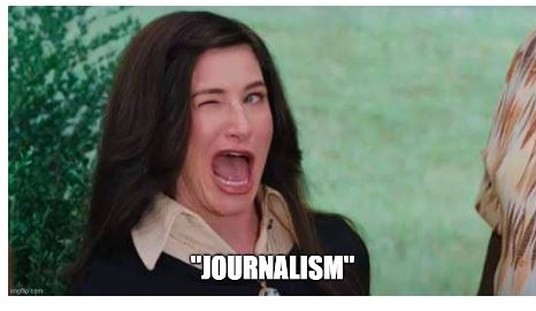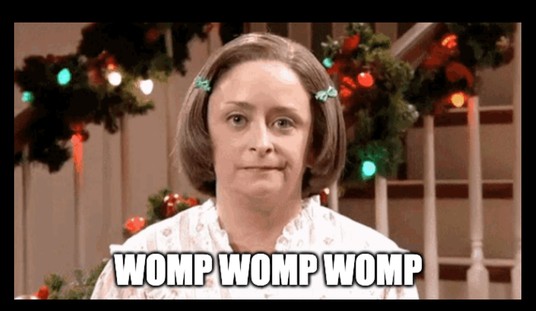Back in December, the once-respected Scientific American did a piece on the stigmatization of black women’s bodies. We noted in that post that obesity hadn’t cost pop star Lizzo her share of fame and fortune.
The heightened concern about black women's weight reflects the racist stigmatization of their bodies. It also ignores how interrelated social factors impact black women’s health. https://t.co/sqVv8wpHyJ
— Scientific American (@sciam) December 28, 2022
“The Racist Roots of Fighting Obesity.” OK. Sabrina Strings and Lindo Bacon explained:
This heightened concern about their weight is not new; it reflects the racist stigmatization of Black women’s bodies. Nearly three centuries ago scientists studying race argued that African women were especially likely to reach dimensions that the typical European might scorn. The men of Africa were said to like their women robust, and the European press featured tales of cultural events loosely described as festivals intended to fatten African women to the desired, “unwieldy” size.
Strings has also published a book entitled, “Fearing the Black Body: The Racial Origins of Fat Phobia,” if you want to know more.
In any case, the aforementioned Lizzo recently decided to post a naked selfie to “change the conversation on beauty standards.” You’ll note from the screenshot that this article was published in … Women’s Health magazine.
Thanks, but my beauty standards remain unchanged. pic.twitter.com/Zz69eJiCCk
— 𝐆𝐫𝐞𝐠 🏳️🌈 (@CasuallyGreg) April 10, 2023
This is morbid obesity.
This is diabetes.
This is insulin resistance.
This is sleep apnea.
This is early death.
This is NOT to be admired. Regardless of beauty or NOT. Don't let them make you stupid.— Afshine Emrani MD FACC (@afshineemrani) April 10, 2023
Greg its your white privilege talking here…those sticky European beauty standards is the reason you can't admit her irresistible beauty.
— Dr. Joel Brown FRSA (@JoelBrownMD) April 10, 2023
The most accurate word in this was “sticky.”
— 𝐆𝐫𝐞𝐠 🏳️🌈 (@CasuallyGreg) April 11, 2023
I too would like to change the conversation about beauty standards. pic.twitter.com/rCfmp38TaE
— Jeff Dye (@JeffDye) April 10, 2023
How does this change the conversation… she’s been throwing her rolls in everyone’s face since she first debut. It’s the same conversation she keeps trying to have and change but no one cares. Only one it seems to be weighing heavy on is her.
— . (@deletenullvoid) April 10, 2023
I speak for everyone when I say nobody wanted to see that
— HITUNE (@hitxne) April 10, 2023
Before Lizzo: No.
After Lizzo: Hell no.She changed the standards.
— brian t muldoon (@brian_t_muldoon) April 10, 2023
Reenforced them.
— Brett (@Texan__Pride) April 10, 2023
All it did, was make things worse.
Now many of us are scarred.
— IntentionalGlitch (@G_l_i_t_c_h_e_d) April 10, 2023
I wasn't aware there was a "conversation" about beauty standards 😂
— Fuller (@echosoftomorrow) April 10, 2023
They act like this is a big deal, but there's nothing showing in this picture that isn't showing when she's on stage.
— Bryan White (@imbryanwhite) April 10, 2023
Last time I saw something like this it it had Carrie Fisher tied to a chain.
— Ryan Blood (@theryanblood) April 10, 2023
You can post all the articles and fat selfies you want, but the vast majority of society is still not going to equate morbid obesity with beauty. 😵💫
Reality does still matter, no matter how much some of you may despise it. pic.twitter.com/9RzK0FPeiK
— Theo Jordan (@Theo_TJ_Jordan) April 10, 2023
Cosmopolitan says this is healthy. Scientific American says your beauty standards are based in racism. Why is the media so intent on telling obese black women to stay that way and be proud of it?
***
Related:
Scientific American looks at the racist stigmatization of black women’s bodies and obesity https://t.co/bhVmuHkW1u
— Twitchy Team (@TwitchyTeam) December 28, 2022
























Join the conversation as a VIP Member